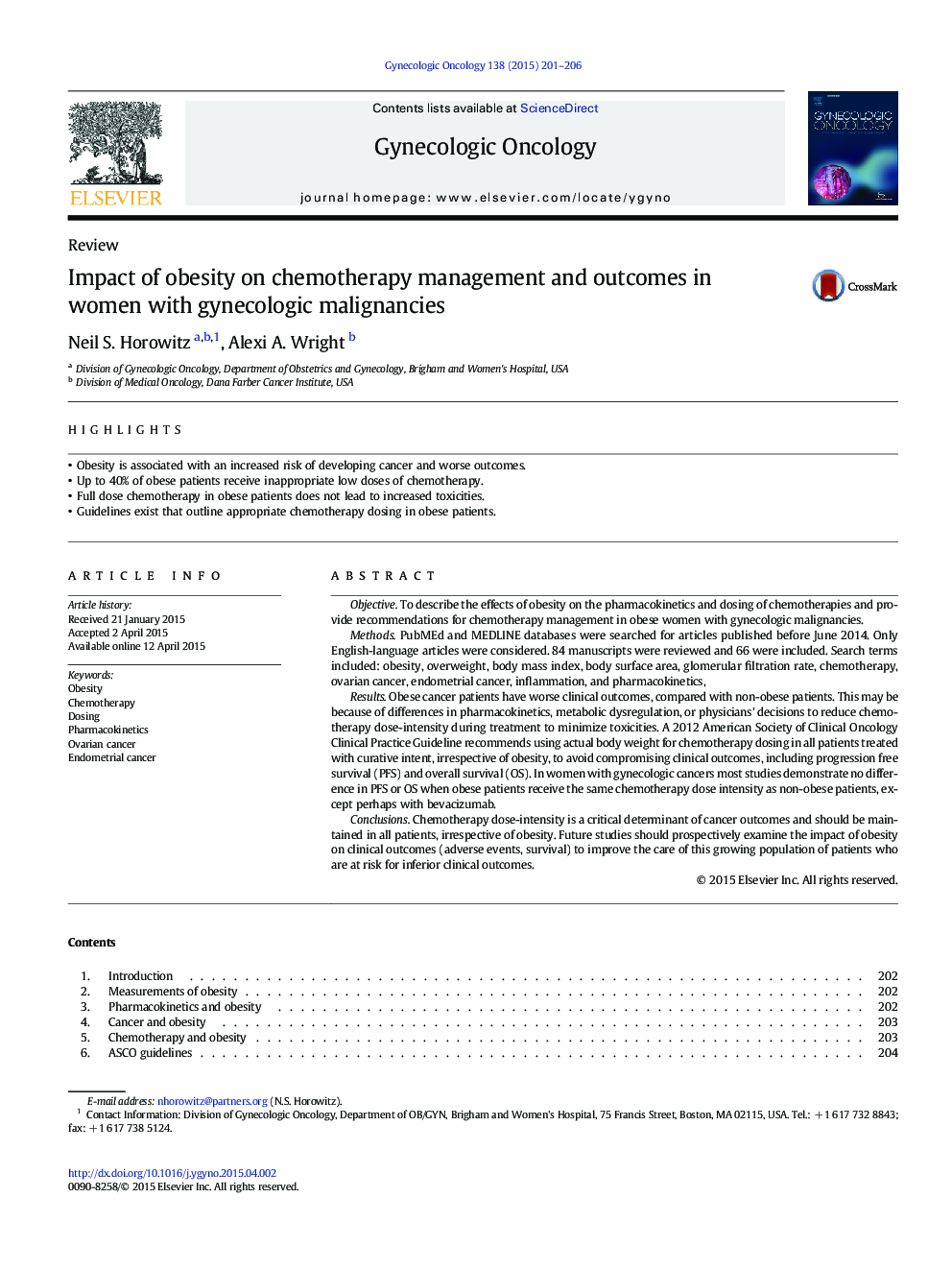| کد مقاله | کد نشریه | سال انتشار | مقاله انگلیسی | نسخه تمام متن |
|---|---|---|---|---|
| 6182684 | 1254024 | 2015 | 6 صفحه PDF | دانلود رایگان |
- Obesity is associated with an increased risk of developing cancer and worse outcomes.
- Up to 40% of obese patients receive inappropriate low doses of chemotherapy.
- Full dose chemotherapy in obese patients does not lead to increased toxicities.
- Guidelines exist that outline appropriate chemotherapy dosing in obese patients.
ObjectiveTo describe the effects of obesity on the pharmacokinetics and dosing of chemotherapies and provide recommendations for chemotherapy management in obese women with gynecologic malignancies.MethodsPubMEd and MEDLINE databases were searched for articles published before June 2014. Only English-language articles were considered. 84 manuscripts were reviewed and 66 were included. Search terms included: obesity, overweight, body mass index, body surface area, glomerular filtration rate, chemotherapy, ovarian cancer, endometrial cancer, inflammation, and pharmacokinetics,ResultsObese cancer patients have worse clinical outcomes, compared with non-obese patients. This may be because of differences in pharmacokinetics, metabolic dysregulation, or physicians' decisions to reduce chemotherapy dose-intensity during treatment to minimize toxicities. A 2012 American Society of Clinical Oncology Clinical Practice Guideline recommends using actual body weight for chemotherapy dosing in all patients treated with curative intent, irrespective of obesity, to avoid compromising clinical outcomes, including progression free survival (PFS) and overall survival (OS). In women with gynecologic cancers most studies demonstrate no difference in PFS or OS when obese patients receive the same chemotherapy dose intensity as non-obese patients, except perhaps with bevacizumab.ConclusionsChemotherapy dose-intensity is a critical determinant of cancer outcomes and should be maintained in all patients, irrespective of obesity. Future studies should prospectively examine the impact of obesity on clinical outcomes (adverse events, survival) to improve the care of this growing population of patients who are at risk for inferior clinical outcomes.
Journal: Gynecologic Oncology - Volume 138, Issue 1, July 2015, Pages 201-206
